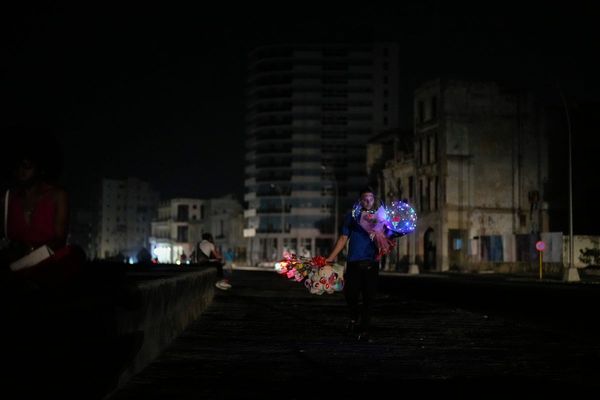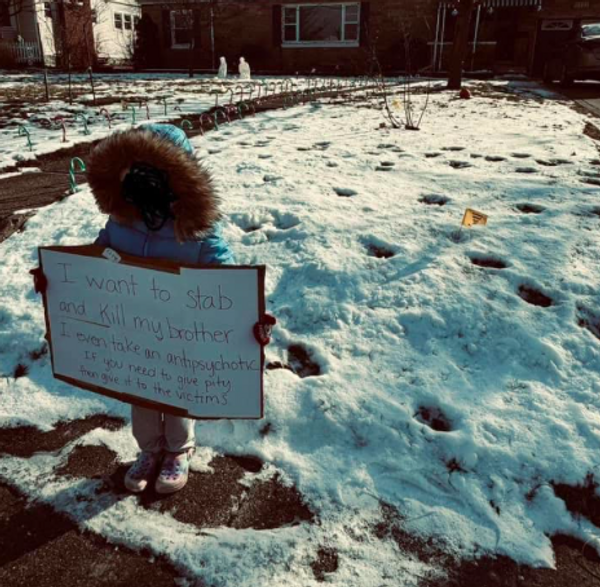
Nigeria’s literary canon in English is a rich and ever-evolving archive, ranging from Chinua Achebe’s cornerstone Things Fall Apart to Buchi Emecheta’s moving lamentations on immigrant life in 1960s London; from Ben Okri’s dreamscapes to the colourful comedy of Lola Shoneyin’s 2010 novel The Secret Lives of Baba Segi’s Wives. This treasure trove is often a point of departure for the nation’s younger writers, with intertextual hat tipping – covert or otherwise – widespread. In the opening of Chukwuebuka Ibeh’s Blessings, which begins in 2006 in Port Harcourt, the influence of Chimamanda Ngozi Adichie’s own coming-of-age debut, Purple Hibiscus, is potent.
Like Adichie’s first novel, Blessings is initially located in a rigidly patriarchal, fiercely normative Nigerian household. There’s a victimised, wearied mother, Uzoamaka, and an intractable, violent father, Anozie, who is hellbent on rooting out supposed deviance and disobedience within his family. A “nebulous sense of doom” is pervasive.
One seeming challenge to Anozie’s masculinist regime is the “soft-voiced innocence” of his eldest son, Obiefuna. Obiefuna is a shy and academic teenager with an unlikely talent for dancing: an astonishing “ability to manipulate his limbs into impossible angles”. Obiefuna’s dreamy sensibility is perceived by his mother as a source of “elation … despite the irritated snorts of other parents”. Anozie, however, is threatened and disgusted by the idea that his delightfully light-footed son is perhaps a “woman in a man’s skin”.
Early in the novel, Anozie stumbles upon Obiefuna and Aboy, the apprentice at the family’s business, in a clinch. Anozie’s response is to pack his son off to a ferociously Christian all-boys boarding school miles away in Owerri. It’s a bleak place. The physical abuse that Obiefuna encountered at home takes on new psychological and sexual forms. Interactions with older students – the brooding and sadistic Senior Papilo, and the exploitative and seductively unpredictable Senior Kachi – complicate Obiefuna’s tenderly emerging sense of his own sexuality.
Obiefuna’s strategies for survival largely consist of passivity, compliance, patience and conformity. The Bildungsroman may seem an inherently mobile form, charting the path towards maturation, and indeed Obiefuna’s life expands as he finds an alternative “chosen family” and is forced to engage with the Nigerian political class’s weaponisation of queerness. But so much of this story is actually about Obiefuna’s attempts at stillness and invisibility, as he does the expedient thing – betraying other queer friends, keeping the secrets of dubious authority figures – to ensure that people do not “figure out” who he is. It will be painfully recognisable to many marginalised people that Obiefuna’s arc is dominated by his continuation of the campaign of erasure his father initiated against him. As such, in a novel of secrecy, silences and silencing, Ibeh’s sentences throughout are fastidiously pruned.
There are several striking occasions on which this aesthetic makes way for a little more transcendence, and we’re given a hint of something higher and more hopeful, as implied by Ibeh’s title. These instances often come about when Obiefuna is swept up by music, letting his meticulously patrolled and controlled body move freely, and connecting with an inner and untarnished joy. Much of this sublime feeling is also generated when Obiefuna thinks of his mother: “Sometimes she manifests in his dreams as a small dot in the sky, the lone light that stays on even as others fade away. She doesn’t speak … but [he hears] the sound of her voice … singing … something about comforting a child who was robbed of his belongings by a greedy world.”
While this beautiful image is one of a mother’s enduringly nurturing force, Ibeh’s extraordinarily composed and deeply felt debut ultimately asks a different question. Its protagonist faces a difficult and universal challenge: how do we rise from broken beginnings and find better ways of nurturing ourselves?
• Blessings by Chukwuebuka Ibeh is published by Viking (£14.99). To support the Guardian and Observer, order your copy at guardianbookshop.com. Delivery charges may apply.







